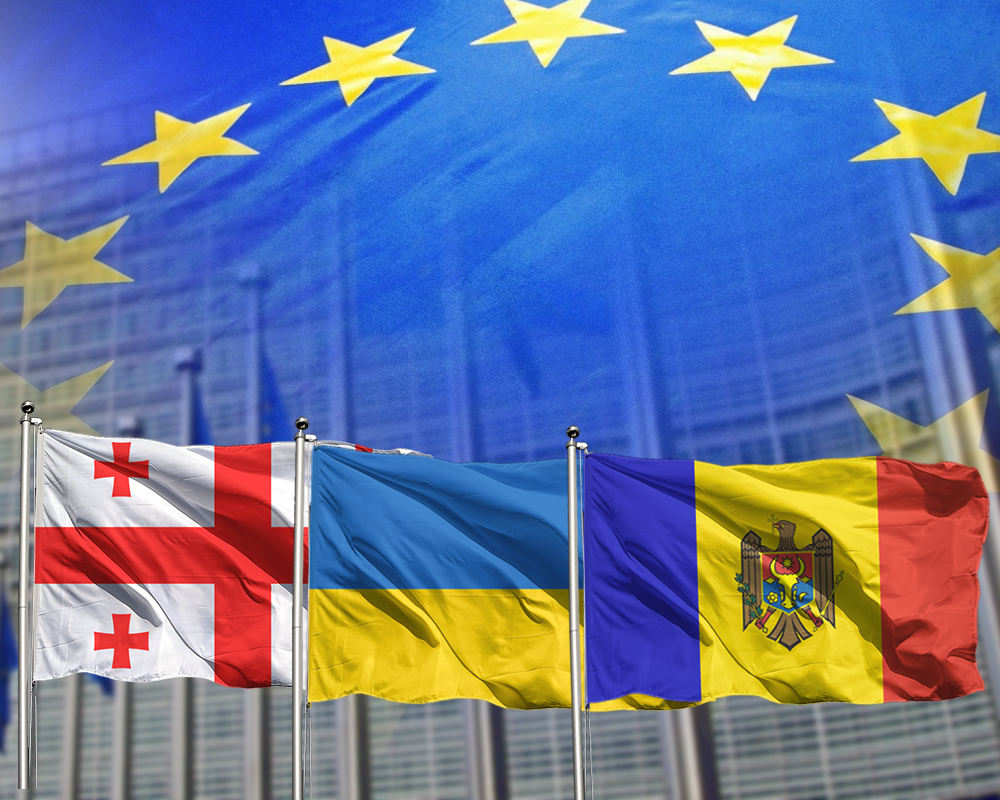Home - Reports - Study: The state of implementation of the associations and free trade agreements with Ukraine, Georgia and Moldova with a particular focus on Ukraine and systemic analysis of key sectors
Study: The state of implementation of the associations and free trade agreements with Ukraine, Georgia and Moldova with a particular focus on Ukraine and systemic analysis of key sectors
17 November 2017

ABSTRACT: Signing and ratifying Association Agreements with Georgia, Moldova, and Ukraine has proven to be an impressive affirmation of Brussels’ soft power. The EU’s overtures have persuaded elites and mobilised societies despite the fact that the Agreements come neither with a membership promise nor with the kind of financial assistance that has been given to the EU’s new member states. EU assistance has been effective in restoring macro-financial stability in all three countries. While costs of compliance with the DCFTA were calculated, level of investment associated with the necessary modernisation to make these economies competitive were neglected. The discrepancy between costs and benefits should prompt the EU to be more flexible. Brussels’ achievements remain fragile. Informal interests continue to play important roles in these countries and have the potential to thwart reforms. In the absence of strong, de-politicised institutions, the EU should work to support political consolidation—the alternative is further polarisation and political fragility—while at the same time insisting on adherence to democratic standards and strengthened institutional checks and balances.
NOTE: This paper was requested by the European Parliament’s Committee on Foreign Affairs. English-language manuscript was completed on 16 November 2017. Printed in Belgium.
Authors: Iulian GROZA, Executive Director of the Institute for European Policies and Reforms (IPRE) in Chisinau and former Deputy Minister of Foreign Affairs and European Integration of the Republic of Moldova; Balazs JARABIK (coordinator), non-resident scholar at the Carnegie Endowment for International Peace, where his research focuses on Ukraine and Eastern Europe.Jana KOBZOVA, Policy Director at Rasmussen Global, a political consultancy, associate fellow at the European Council on Foreign Relations, London; Dr. Viktor KONSTANTYNOV, Associate Professor at the Institute of International Relations, Taras Shevchenko National University of Kyiv; Tsovinar KUIUMCHIAN, research assistant at Carnegie Europe and a student in European Social and Political Studies at University College London (UCL); Leonid LITRA, Senior Research Fellow at the New Europe Center in Kyiv and Associate Fellow at the Institute for Development and Social Initiatives ‘Viitorul’ in Chisinau, Moldova; Tornike SHARASHENIDZE, Full Professor and Head of the MA Program in International Relations at the Georgian Institute of Public Affairs (GIPA); Isaac WEBB, writer and editor based in Berkeley, California.
Official Responsible: Krzysztof BARTCZAK.
Editorial Assistant: Elina STERGATOU.
Feedback of all kind is welcome. Please write to: [email protected].
To obtain copies, please send a request to: [email protected]
This paper will be published on the European Parliament’s online database, ‘Think tank‘.
The content of this document is the sole responsibility of the authors and any opinions expressed therein do not necessarily represent the official position of the European Parliament. It is addressed to the Members and staff of the EP for their parliamentary work. Reproduction and translation for non-commercial purposes are authorised, provided the source is acknowledged and the European Parliament is given prior notice and sent a copy.
ISBN: 978-92-846-2220-7 (pdf) ISBN: 978-92-846-2219-1 (paper) doi:10.2861/489093 (pdf) doi:10.2861/655603 (paper) Catalogue number: QA-05-17-170-EN-N (pdf) Catalogue number: QA-05-17-170-EN-C (paper)

